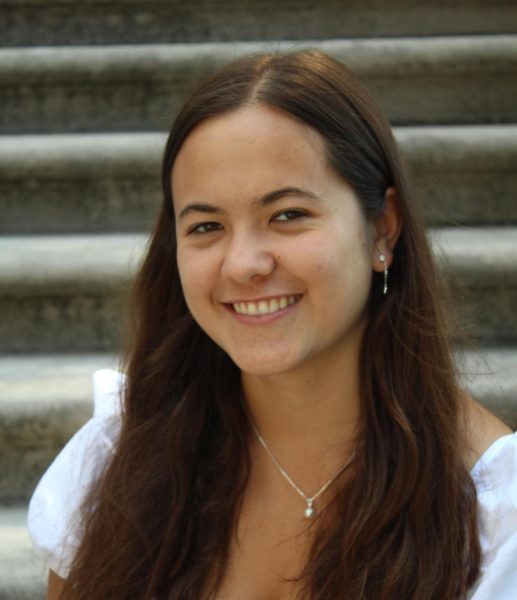The class of 2023 has officially graduated from WIS, and most of the newly-crowned alumni are heading off to the next chapter of their lives: college.
The college application process this year was met with a positive attitude across the grade, according to the college counselors and several members of the class of 2023.
The college counselors Joanna Tudge and Pam Joos implemented a variety of measures to encourage reflective thinking and limit toxic competitiveness in the college application process. “We want you to be reflective,” Joos said. “We want you to really put your heart into this.”
Senior Madeline Robbins believes her class was very supportive of each other due to their variety of interests.
“I think [it’s] maybe a product of there not being a ton of direct competition,” she said. “But at the same time, I just think we have a really great dynamic across the board. We’re all very uplifting of each other.”
Senior Sebastian Illing believes they approached the process in a “professional manner” in which everyone respected their peers. Illing only told his closest friends about his college news.
“There was no boasting,” he said. “It was much more… just delivering factual news.”
“It doesn’t have to be stressful, especially when you’ve got people who are supporting each other and no one’s boasting and everyone knows how to be respectful. It makes the whole process much better.”
Sebastian Illing
Tudge remarked that the seniors were very good at staying discreet about the process and celebrating each other’s achievements when they chose to share their decisions.
“We would like to think we played some role in trying to model or suggest to them multiple times and multiple ways [to be supportive], either through the [college] honor code or talking to them about [the college process],” Joos said.
The college counselors also had current seniors talk to juniors so the latter could receive the message from their peers.
When asked if the class of 2022’s college process was particularly competitive, both college counselors laughed self-consciously and simply said “yes.”
Robbins believes that the class of 2022 was not a good role model for her grade coming into the college application process due to an abundance of toxicity during their process. Illing describes hearing “horror stories” about the class of 2022.
For example, the class of 2022 created a wall of rejection to display their college rejection letters. However, Robbins noticed that these letters were mainly from top-tier universities and that people were embarrassed to hang up letters from other colleges, which she says defeats the purpose of the wall.
The International Student Union (ISU) and the class of 2023 decided not to follow the class of 2022 with the wall of rejection at the start of the school year. “No matter how positive it could be, the negatives outweigh that,” Robbins, who was a member of ISU, said.
“We’re all very uplifting of each other.”
Madeline Robbins
Though he does not believe the class of 2022’s approach was the driving factor in his grade’s approach, Illing does think the wall of rejection impacted him.
“I remember thinking, ‘Why would anyone do that?’” he said. “I suppose that kind of gave me the sense of wanting to be respectful about it. And I think that was shared by a lot of people in our grade.”
Joos believes that it is not healthy for students to overly discuss college acceptances and rejections. The college counselors often hear students discuss their grades as well, which Joos also believes students should refrain from talking about.
As a way to limit excessive college discourse, the college counselors introduced the college honor code. Both college counselors emphasized that the honor code was in existence pre-COVID, but they tweaked it for the class of 2023 to adjust to the ever-changing landscape of college applications. For example, they addressed the rising number of applications students sent in by limiting the number of American schools students could apply to 15 colleges.
“We also think the emphasis has been through this honor code to encourage students to be reflective, be thoughtful, be honest,” Joos said. Tudge added that it encourages students “to focus on themselves, rather than a community thing.”
Robbins believes that the honor code was extremely valuable for the health and well-being of her grade, as it reduced conversations about college, which can be frustrating if someone’s plans for college are not solidified, such as her own. At the time of her interview, Robbins was still deciding between attending college in the U.K., the U.S. or Canada. She thinks it is beneficial to keep social, academic and college life separate.
Illing, on the other hand, did not know about the honor code’s existence until reading a Dateline article about it, and believes many people in his grade also did not know about it. Senior Tristan Martin does not think his classmates followed the honor code and was also unaware of the details of the code throughout the year.
“We were told about it at the beginning of the year, but there’s just so much going on, [so] it just flew out of my head,” he said. “I knew there was one, and I just was like, ‘Okay, I don’t think I’m going to do anything terribly wrong.’”
Despite many seniors being unaware of the college honor code, Illing says that his grade’s attitude led them to be respectful anyway.
“I think anyone can be respectful,” he said. “That’s not something that’s going to be instilled by the existence of an honor code.”
Senior Chloe Chao was aware of the honor code due to several conversations with her college counselor about it and class meetings. Though she believes people would have been respectful without the honor code, Chao thinks that the honor code helped create a positive atmosphere.
“It enforces it in everybody’s minds that they should not talk about [college and] that it’s very personal,” she said.
Many seniors do not believe all of their peers stuck to the rule of applying to only 15 colleges. Some were given exceptions by the college counselors, such as senior Isabel Restrepo, since she applied to theatre and BFA programs, making her process different and more selective than the normal one.
“I had to talk to [Tudge] about it and be like, ‘This is why I’m doing it’ and she was like, ‘That makes sense, based on what you’re doing.’ It wasn’t a thing I decided on my own,” Restrepo said.
Restrepo says it was strange, though not necessarily good or bad, to not talk about college at school, though one could discuss it outside of school.
“From basically September to January, the main thing happening in everybody’s life is college decisions, college applications, doing this whole process, and it was just kind of odd to not really be able to talk about that at school,” she said.
She says it is difficult to assess her class’ approach to the process due to the discretion of their process and the honor code rules.
Although the class of 2023 has shown thoughtfulness in applying to and discussing college, the college counselors worry about the incoming seniors.
“We have heard a few things that we’re not particularly happy about, in terms of potentially judging other students’ decisions,” Joos said, pointing out that students may also not know other students’ family situations. “It really, really hurts me when I hear how other students [criticize each other].”
The college counselors are also “not big fans” of the college commitment Instagram page.
“We’ve seen students feel pressured to put something out there, even though they hadn’t even had the conversation with their parents,” Joos said. The college counselors pointed out that WIS only publishes a list of commitments by class and does not identify which student is heading to each college in the fall.
Although the college counselors feel like things are going “a little awry,” in Joos’ words, for the class of 2024, they hope that students can take a step back, remember this is their first time applying to college and look to people who have already gone through the process for resources and advice.
Illing’s advice for next year’s seniors is simple: relax.
“I think there’s this idea of a stressful process,” he said. “It doesn’t have to be stressful, especially when you’ve got people who are supporting each other and no one’s boasting and everyone knows how to be respectful. It makes the whole process much better.”
Chao calls her college application process a “positive experience” due to the manner in which her grade approached it and her college counselor’s support.
Robbins hopes that next year’s seniors will be supportive of each other as well. She also urges students to learn to accept rejection.
“No matter how qualified you are, everyone is going to get rejected,” Robbins said. “Don’t take the rejections personally. It’s hard not to, and it takes a toll on you, but it’s not a reflection of how qualified you are.”
By Naomi Breuer and Isabella Duchovny



































































